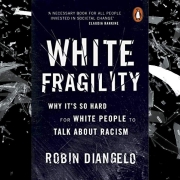How Are You Trending?
Lately, we’ve been hearing a lot of terms like: “peak performance,” “level up,” and “elevate yourself” as it relates to being our best self. However, our best self is something that we should take time to think of. Only once we have a good idea of what our best self looks like can develop a proper road map to achieving that.
One tool that can be very effective in achieving our goals, can be to take an inventory of ourselves and assess mindfully how we are trending. We might think of trending as it relates to social media. However, here the term describes an assessment of ourselves.
In therapy or counseling, we often use scales to take a personal inventory.
For example, if you have been experiencing constant anxiety you may say that the anxiety is at an 8 out of 10; 10 being the worst. Your long-term goal may be to get anxiety down to a 2 or 3. However, that can’t happen unless you develop a plan and utilize anxiety-relieving tools.
Understanding how you are trending allows you to set measurable goals where you are able to go from an 8 to a 6 and so forth. If you take that progression then you are trending in the correct direction.
Often individuals have great long-term goals. Which could be to feel more peace, to be happier, or to be less stressed. What often gets in the way of those goals is being unaware of the direction we are trending. After all, all of us carry busy schedules and have many things to do. When we are overwhelmed or highly stressed our brains go into survival mode instead of naturally assessing how we are trending.
If you have a goal or an idea of what your best self is; are you trending away or toward that direction? If you are trending away, what might you do to help yourself begin to trend in the right direction? If you notice you are trending toward your goal what has been working? And as always be gentle with yourself in any direction you may be headed.
















